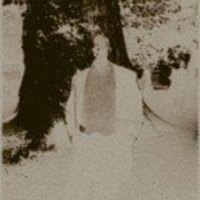- Musicology, Music, Cultural History, Music History, Aesthetics, Sociology of Music, and 41 moreHistoriography, History and Memory, Memory Studies, Cultural Memory, Arnold Schoenberg, Benjamin Britten, Theodor Adorno, Lieux de memoire, Critical Theory, Science Fiction and Fantasy, Adorno, Frankfurt School, Intellectual History, 20th century Avant-Garde, Music Aesthetics, Music Criticism, History of music, Music in the German Democratic Republic, John Adams, Opera, Regietheater, Regieoper, Holocaust Studies, Commemoration and Memory, Collective Memory, Germany, Settler Colonial Studies, Settler colonialism, American Studies, American music, Theatre Studies, Contemporary Opera, Documentary Theatre, Performance Studies, Social Memory, Culture of Remembrance, Memory Culture, Politics of History, Theatre, Testimony, verbatim, documentary theatre, and Contemporary Musicedit
Research Interests:
Research Interests:
This article details how pre-existing narratives concerning Heinrich Schütz and the Thirty Years War could serve as inspiration and be drawn upon following the Allied destruction of Dresden in 1945. The city’s Kreuzkantor, Rudolf... more
This article details how pre-existing narratives concerning Heinrich Schütz and the Thirty Years War could serve as inspiration and be drawn upon following the Allied destruction of Dresden in 1945. The city’s Kreuzkantor, Rudolf Mauersberger, was the prime mover behind many of the new memorials and festivals that were organized during the post-war years. Mauersberger’s own Dresdner Requiem (1947–48, regularly revised until the mid-1960s), commemorating Dresden’s destruction, not only draws upon the polychoral structure of Schütz’s Musikalische Exequien, part 3, but also includes the hymn Jerusalem, du hochgebaute Stadt (1626), written in response to the Thirty Years War.
Full article available at https://sscm-jscm.org/jscm-issues/volume-26-no-1/ottersen-echoes-of-schutz/
Full article available at https://sscm-jscm.org/jscm-issues/volume-26-no-1/ottersen-echoes-of-schutz/
Research Interests:
A brief introduction for a general audience.
Research Interests:
Var Arne Nordheims musikk provoserande, samfunnskritisk pling-plong, eller forsonleg statsmodernisme frå hoffkomponisten ved slottet, spør Torbjørn S. Ottersen.
Research Interests:
In Arnold Schoenberg's _A Survivor from Warsaw_ (1947) the eponymous survivor relates and reenacts a telescoped account of Jewish suffering in Nazi-occupied Europe, culminating in the choral singing of the _Shema_, the central confession... more
In Arnold Schoenberg's _A Survivor from Warsaw_ (1947) the eponymous survivor relates and reenacts a telescoped account of Jewish suffering in Nazi-occupied Europe, culminating in the choral singing of the _Shema_, the central confession of Jewish faith. This artistic encounter between Schoenberg and the Holocaust has been the subject of a vast amount of scholarship and commentary. From the very first of these (List, 'Schoenberg's New Cantata') a recurring sticking point has been that the work 'evokes Hollywood, whether intentionally or not' (Feisst, _Schoenberg's New World_), a possible connection that is usually seen as troubling (e.g. Adorno, 'Arnold Schoenberg') or disqualifying (e.g. Taruskin, 'A Sturdy Musical Bridge').
Taking my cue from Kurt List's detailed 1948 review, which is severely critical of the text and narrative of the work, I propose to compare _A Survivor's_ plot to a number of early popular fictional representations of the Holocaust and the Warsaw Ghetto uprising, starting with the now mostly forgotten Columbia B movie _None Shall Escape_ (1944). Arguably the first Hollywood movie to deal with the Holocaust, _None Shall Escape_ details Nazi atrocities through testimony offered at a postwar Allied trial of a single Nazi officer. Its depiction of the massacre of the Jews of one Polish village, in which they suddenly turn to fight, culminating in their rabbi's dying recital of the Kaddish, has striking parallels with the climactic conclusion of _A Survivor_, I suggest. Beyond this striking similarity, however, I argue that Schoenberg's plot follows a common Hollywood mode of depicting fortitude and sacrifice in the face of the Nazi enemy, as seen in war films such as _Mrs. Miniver_ (1942) and _The Moon is Down_ (1943), as well as in radio plays such as _The Battle of the Warsaw Ghetto_ (Morton Wishengrad, NBC, 1943).
I conclude, however, with Schoenberg's objection to the Hollywood comparison (Schoenberg to List). Drawing on it as well as Clement Greenberg's classic distinction between 'Avant-Garde and Kitsch' I attempt to elucidate some of the aesthetic assumptions that can explain why the conjunction Schoenberg, Hollywood, and Holocaust seems impossible or objectionable to so many commentators.
Taking my cue from Kurt List's detailed 1948 review, which is severely critical of the text and narrative of the work, I propose to compare _A Survivor's_ plot to a number of early popular fictional representations of the Holocaust and the Warsaw Ghetto uprising, starting with the now mostly forgotten Columbia B movie _None Shall Escape_ (1944). Arguably the first Hollywood movie to deal with the Holocaust, _None Shall Escape_ details Nazi atrocities through testimony offered at a postwar Allied trial of a single Nazi officer. Its depiction of the massacre of the Jews of one Polish village, in which they suddenly turn to fight, culminating in their rabbi's dying recital of the Kaddish, has striking parallels with the climactic conclusion of _A Survivor_, I suggest. Beyond this striking similarity, however, I argue that Schoenberg's plot follows a common Hollywood mode of depicting fortitude and sacrifice in the face of the Nazi enemy, as seen in war films such as _Mrs. Miniver_ (1942) and _The Moon is Down_ (1943), as well as in radio plays such as _The Battle of the Warsaw Ghetto_ (Morton Wishengrad, NBC, 1943).
I conclude, however, with Schoenberg's objection to the Hollywood comparison (Schoenberg to List). Drawing on it as well as Clement Greenberg's classic distinction between 'Avant-Garde and Kitsch' I attempt to elucidate some of the aesthetic assumptions that can explain why the conjunction Schoenberg, Hollywood, and Holocaust seems impossible or objectionable to so many commentators.
Research Interests:
Research Interests:
Musique et sorties de guerres, XIXe-XXIe siècles/Music and Postwar Transitions (19th-21st Centuries), Université de Montrál, 18–20 October 2018
Research Interests:
54th Annual Conference of the Royal Musical Association, University of Bristol, 13–15 September 2018
Research Interests:
Thirty Years of War: Henrich Schütz and Music in Protestant Germany, Boston University, 11–12 May 2018
Research Interests:
Trauma Studies in the Medical Humanities: New Directions for Research, University of Durham, 12–14 April 2018
Research Interests:
Second Annual Conference of the Memory Studies Association, University of Copenhagen, 14–16 December 2017
